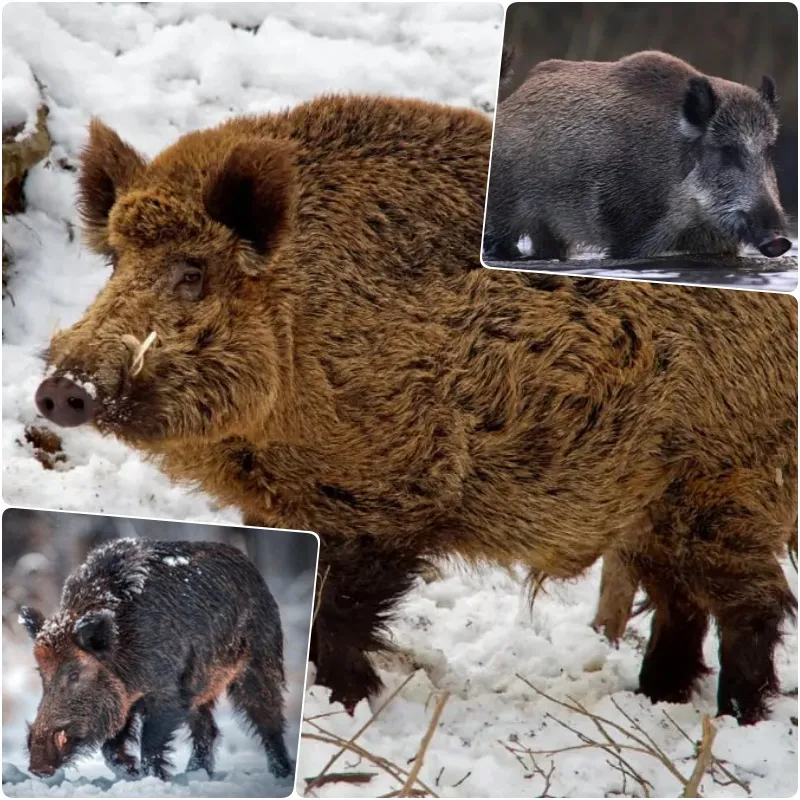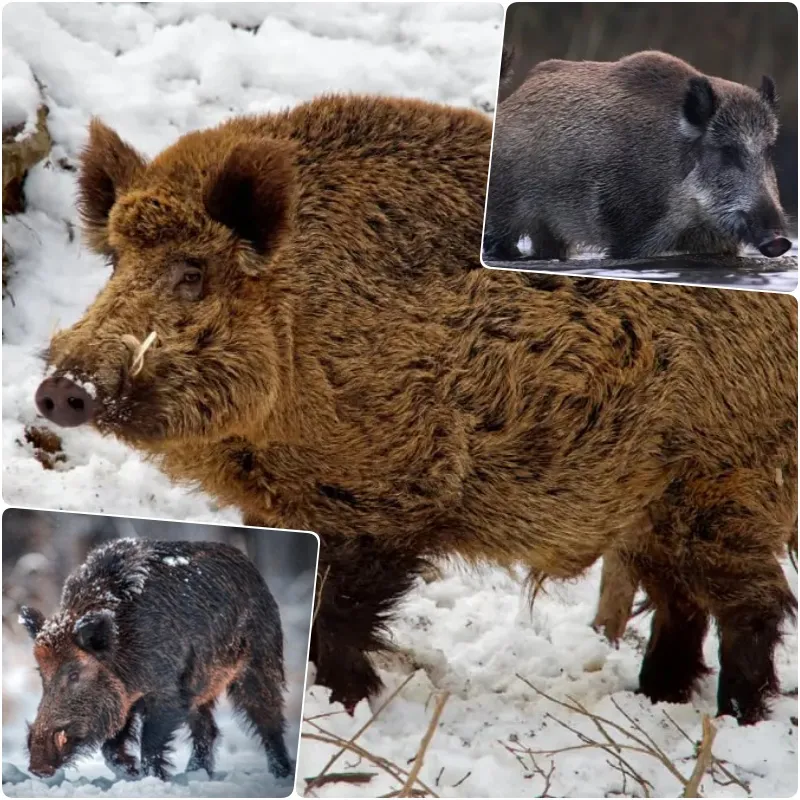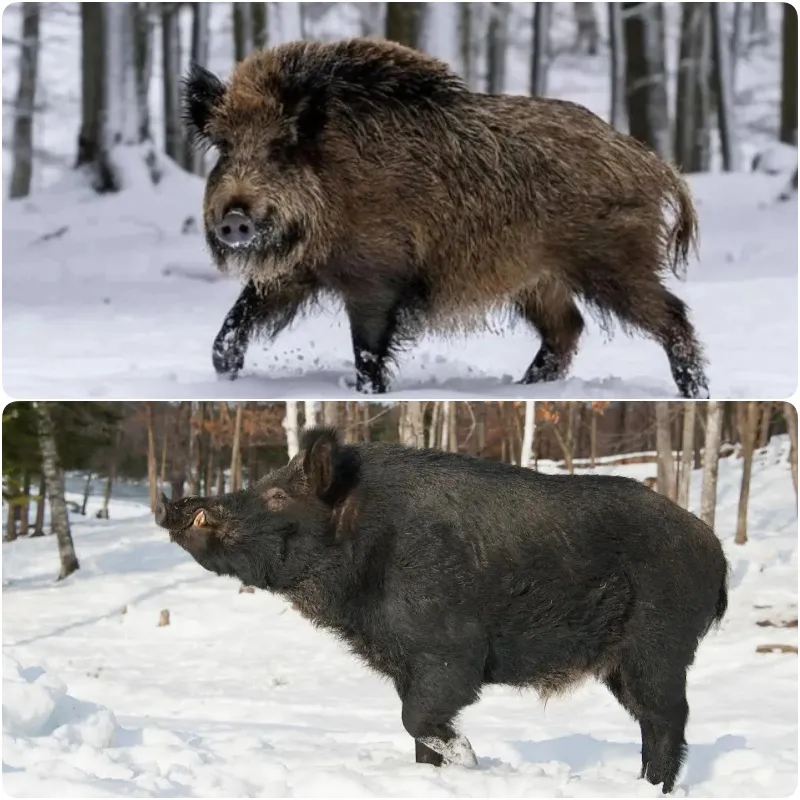
Warning: Canadian ‘Super Pigs’ Threaten to Invade Multiple U.S. States
The Canadian super pigs, a hybrid breed adapted to cold climates, are threatening to invade the United States after rapidly multiplying and spreading. Known as “super pigs,” these animals could soon encroach upon several U.S. states, causing significant damage, with four states identified as particularly high-risk areas.

The term “super pigs” refers to a breed of pig that is a cross between domestic pigs and Eurasian wild boars, introduced to Canada in the 1980s to provide a novel meat product. Farmers selectively bred these pigs to be larger and more resilient to the harsh Canadian winters. When the market for this meat collapsed in 2001, many of these pigs were released into the wild, leading to their proliferation. Today, they are widespread across Alberta, Saskatchewan, and Manitoba, and are increasingly appearing in other provinces.
Ryan Brook, a wildlife expert and professor at the University of Saskatchewan, describes them as the worst invasive large mammal on the planet. Brook has studied these hybrid pigs for over a decade.
A recent study published in Biological Invasions indicates that the northeastern U.S. states of Montana, South Dakota, North Dakota, and western Minnesota are particularly vulnerable to invasion by Canadian super pigs. Researchers used GPS collar data on wild boars to track their movement patterns and assess their invasion potential. The study found that these pigs primarily inhabit forests, fields, and wetlands.
The study highlights the need for monitoring and scientifically-based response strategies to address the potential southern spread of this invasive species, in order to prevent or mitigate damage to crops, risks to native species, and transmission of diseases to humans, domestic animals, and wildlife.

Brook notes that “super pigs” are highly destructive to the environment. They can weigh over 300 kg and eat nearly everything, from amphibians and reptiles to ground-nesting bird eggs such as ducks and geese, and even white-tailed deer. They destroy agricultural crops, particularly corn, by either eating the plants or rooting around to access their roots and insect larvae. Additionally, they carry pathogens that can infect both animals and humans.
If Canadian super pigs establish populations in northern parts of the U.S., farmers in colder climates such as the Dakotas, Montana, and Minnesota may soon face severe impacts from these wild pigs.






